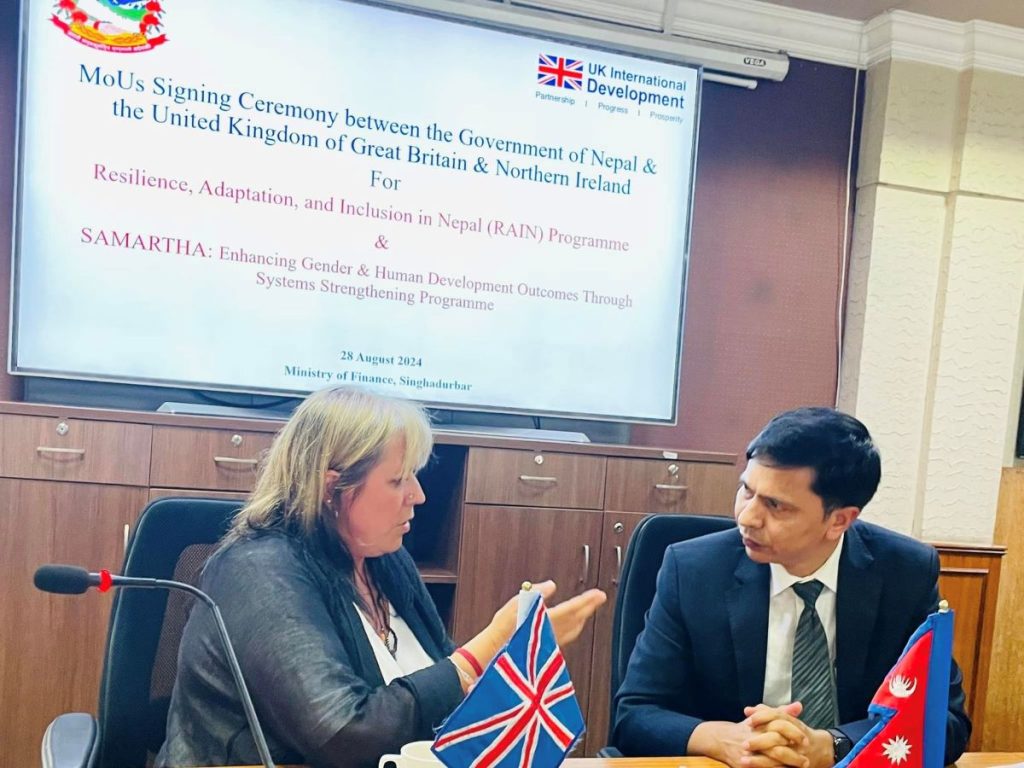Nepal and UK sign MoU for 13.08bn grant aid

Kathmandu: Nepal and the United Kingdom have formalized two separate agreements for grant aid, valued at approximately Rs 13.08 billion, in a ceremony held on Wednesday.
The agreements include a Rs 6.5 billion grant for a programme aimed at enhancing resilience, adaptation, and inclusion in Nepal. The initiative, known as the Resilience, Adaptation, and Inclusion in Nepal (RAIN) programme, is a six-year project focused on improving disaster risk management and climate change adaptation. It will be implemented by Nepal’s Ministry of Home Affairs (MoHA) and the Ministry of Forest and Environment (MoFE) across the Karnali, Lumbini, and Madhesh provinces.
The second grant, amounting to Rs 6.58 billion, will support the Samartha programme, a seven-year initiative designed to bolster provincial and local government systems and capacities. This programme will concentrate on expanding access to quality social services, particularly in the education and health sectors. The Ministry of Education, Science and Technology (MoEST) and the Ministry of Health and Population (MoHP) will oversee the programme’s implementation in Lumbini and Madhesh provinces.
The Memorandums of Understanding (MoUs) were signed by Dhani Ram Sharma, Joint Secretary at Nepal’s Ministry of Finance, and Pippa Bird, Development Director and Deputy Ambassador at the British Embassy in Kathmandu.
In a statement following the signing ceremony, Joint Secretary Sharma remarked, “These two MoUs underscore the strong and enduring development cooperation between our nations. I trust that the involved government agencies will work together effectively to meet the goals of these programmes.”
Pippa Bird emphasized the UK’s commitment to assisting Nepal in tackling climate change, health challenges, and resource limitations. She noted, “These programmes will not only enhance resilience to natural disasters and climate change but also improve the delivery of essential services to the most vulnerable populations.”

